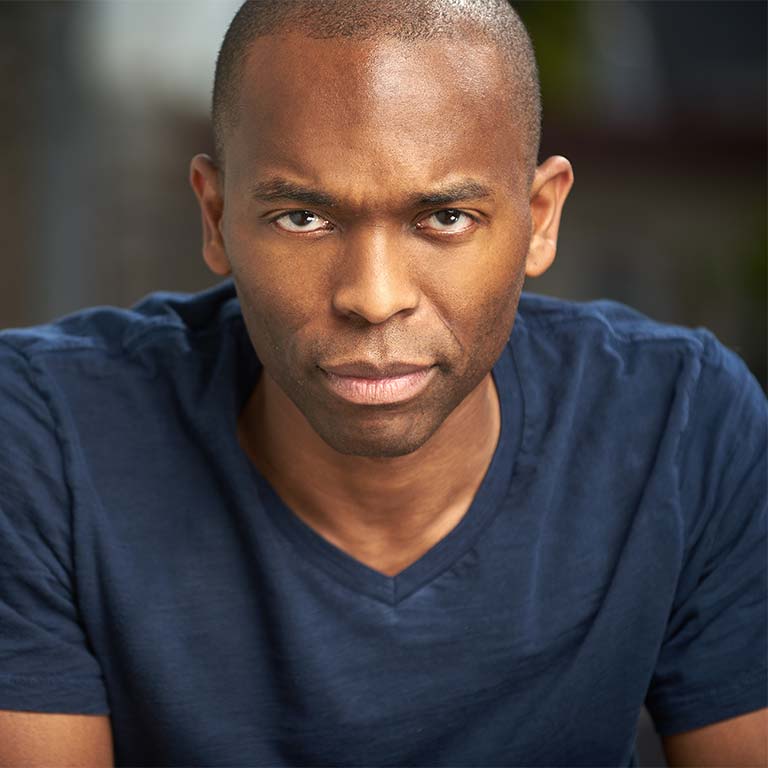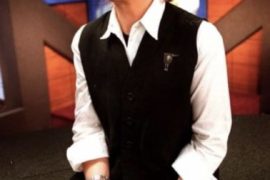Kevin Douglas is an actor, playwright and director. His play, Thaddeus and Slocum: A Vaudeville Adventure, had its world premiere at Lookingglass Theatre in 2015, and garnered him a Black Theatre Alliance Award for Best Writing of a Play.
He has also performed in a number of productions for Lookingglass, such as Black Diamond, Around the World in 80 Days, (Jeff Nomination for Best Supporting Actor), Our Town, The Great Fire, and Mr. Rickey Calls a Meeting (Jeff Nomination for Best Ensemble).
Kevin has also written a number of sketch comedy shows, including Blaxploitation: The Remix and Blaxploitation 2: You Know How We Deux!, No Experience Necessary, and Reality Check, which he also co-directed. Kevin also co-wrote an independent film titled Call Center, which played at this year’s Black Harvest Film Festival and Urban Mediamakers Film Festival in Atlanta.
His latest work, Plantation! is a comedy about a Texas matriarch who surprises her family by how she decides to atone for the sins of her ancestors. Written by Douglas and directed by David Schwimmer (Friends), Plantation! is enjoying quite a healthy buzz and is one of the hottest tickets in town.
N’DIGO: How did you get your start as a writer?
Kevin Douglas: I got the writing bug when I was young. One of the people I looked up to was Eddie Murphy. Early Eddie Murphy – Delirious, Beverly Hills Cop, Trading Places, Saturday Night Live…that Eddie Murphy. I started writing jokes and doing standup and sketch comedy. I was inspired by In Living Color and Def Comedy Jam.
Tell us about Plantation! and why you describe it as “fun-comfortable”?
Plantation! is the story of a Texas matriarch who decides to give reparations to the descendants of a slave her family once owned. It’s a present-day fast, funny, female-driven comedy that deals with race and reparations.
I describe it as “fun-comfortable” because it’s a comedy so it’s funny, and because the play deals with subject matter like race and reparations without pulling any punches, there are moments where you will be uncomfortable. So, fun-comfortable. We have to really deal with the issue of reparations, particularly, those in power. Comedy is the best way, I think, for audiences to be able to talk about these issues.
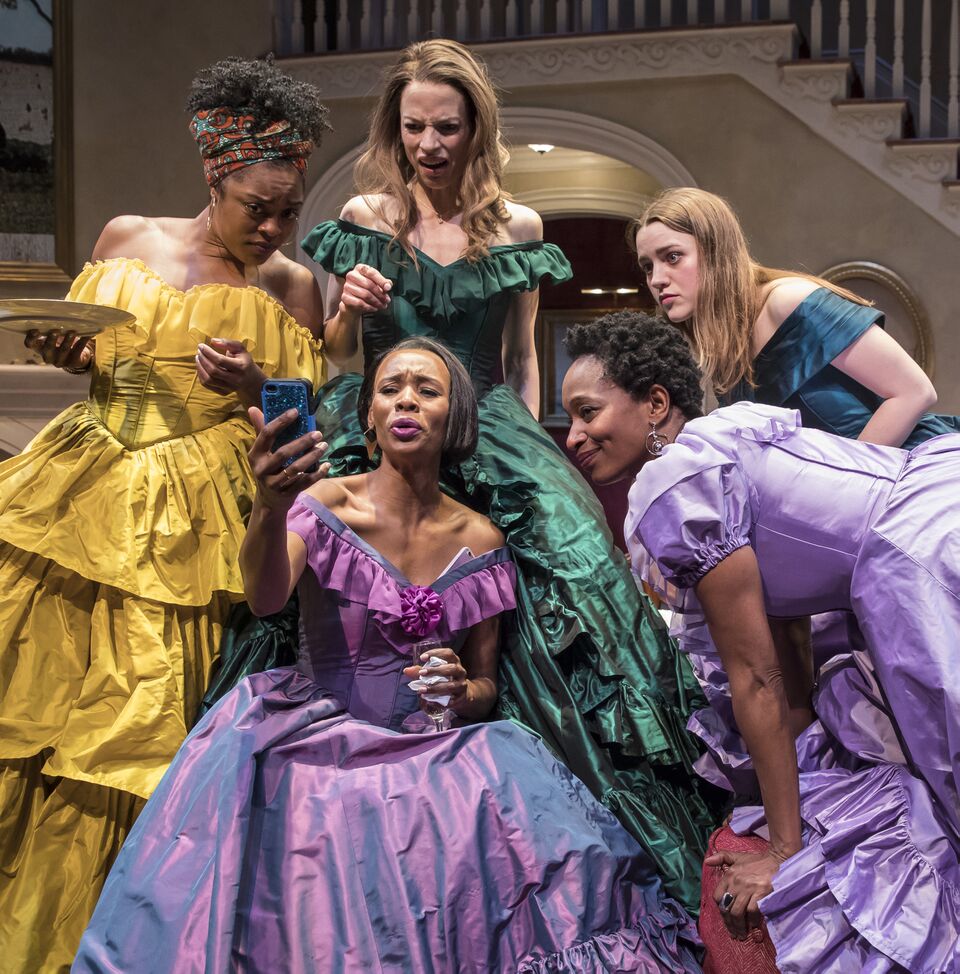
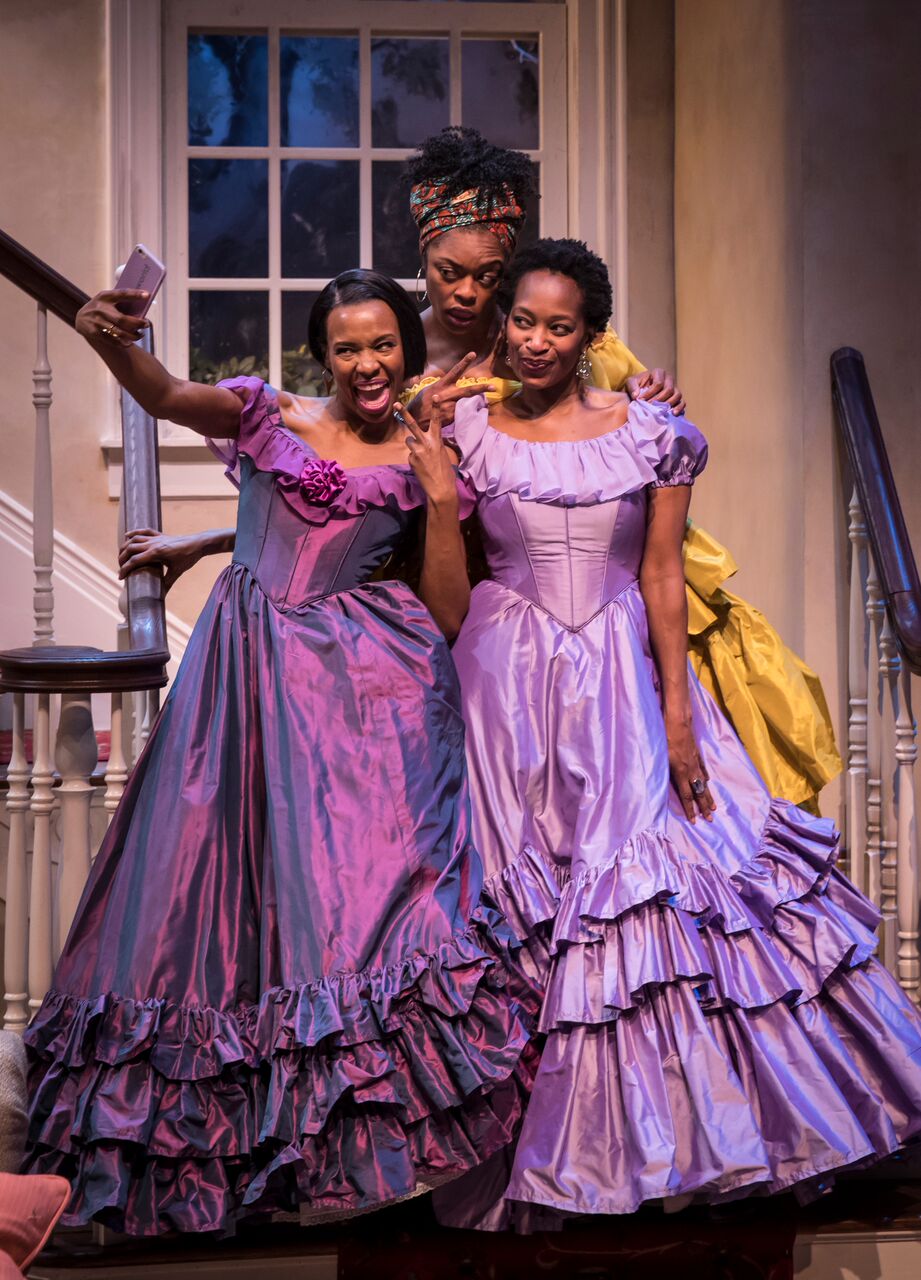
Was there a particular spark that inspired you to write this piece?
I thought to myself, what are ways to get rid of racism? Then I thought about reparations and what that would look like. If you knew your family owned slaves and you wanted to do something about it, give reparations, what would that look like? And that was the spark. What happens when someone tries to right their family’s past transgressions? Plantation! tries to answer those questions.

https://www.transitchicago.com/95thterminal/
What if anything do you want people to take away from the play after seeing it?
My hope is that people think about what they can do to make a difference in our world. What steps can people take to get rid of racism? Patrons of the play have been having conversations long after they have seen the play surrounding the themes of the play. Sure it deals with race and reparations, but it’s also about legacy, and family, and forgiveness.
Were there any unique challenges you faced in getting this play in front of audiences?
Unique challenges? Yes, well, often with a play you want to use the preview process to gauge whether or not something is working. This is very important with a comedy. David Schwimmer, the director, and I would try something one night, but depending on the age, racial makeup, or what day of the week it was, certain jokes or moments would or wouldn’t work. One night no laughs, the next night same jokes huge laughs. It has been interesting. All that to say there is something for everyone in this play.
What’s the process like of turning over your work to a director to interpret? Do you usually work closely with the director to make sure your vision is represented properly?
I have been working closely with the director on most of my plays. That is not always the case. You want a director that gets your play, gets what you are trying to say and a director that stays in communication with you throughout the process. Plantation! was very collaborative. The director really understood the vision of Plantation! so I trusted him, and he is a comedic genius as well, so that was helpful.
What if anything is your writing routine?
I write better early in the morning. Sometimes as early as 3 a.m. I am freshest between 3 a.m. and 10 a.m. That’s usually when the wife and baby are asleep. Coincidence?
Who are three of your all-time favorite playwrights?
I don’t have an all-time favorite and there are so many great ones, but here are just a few that I dig: Inda Craig-Galvan, Amina Henry, Ike Holter, and Tarell McCraney.
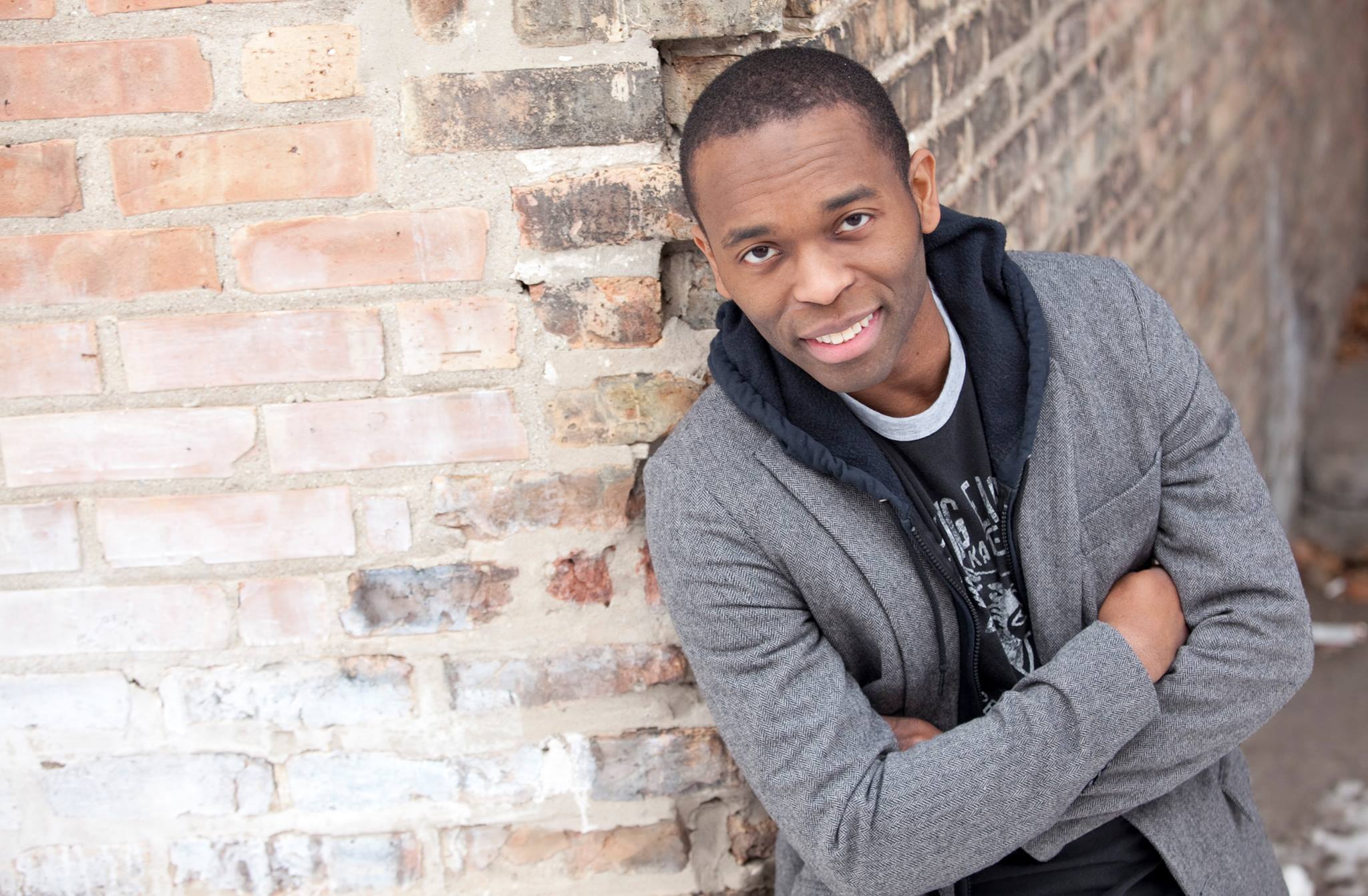
What’s something people would be surprised to know about you?
I was born in Canada. Moved to Texas when I was 10. And I received my citizenship in 2008 after Obama became President. Glad I didn’t wait.
Best advice to aspiring writers?
Finish. Get that first draft out of the way. It may not be great and you will write plenty of drafts after the first one, but finishing puts you way ahead of those who don’t. I would also say, be sure to have a reading (with professional actors) of your play or screenplay out loud so that you hear it. This way you will hear what works and doesn’t work.
Favorite quote or affirmation?
I have two quotes about the importance of curiosity:
“Until we solve the problem of racism, we should be curious about other ideas.” That is by W. Kamau Bell. I have some friends that use the following quote (Khanisha Foster and Tony Sancho): “We should come at everything from a place of curiosity and not judgment.”
What’s next for Kevin Douglas?
Working on a bunch of plays and screenplays. The goal is to continue to write plays as well as screenplays for film and television.
(Catch Plantation! through April 22nd at the Lookingglass Theatre Company, located inside Chicago’s historic Water Tower Water Works, 821 North Michigan Avenue. For more information, visit www.lookingglasstheatre.org.)


